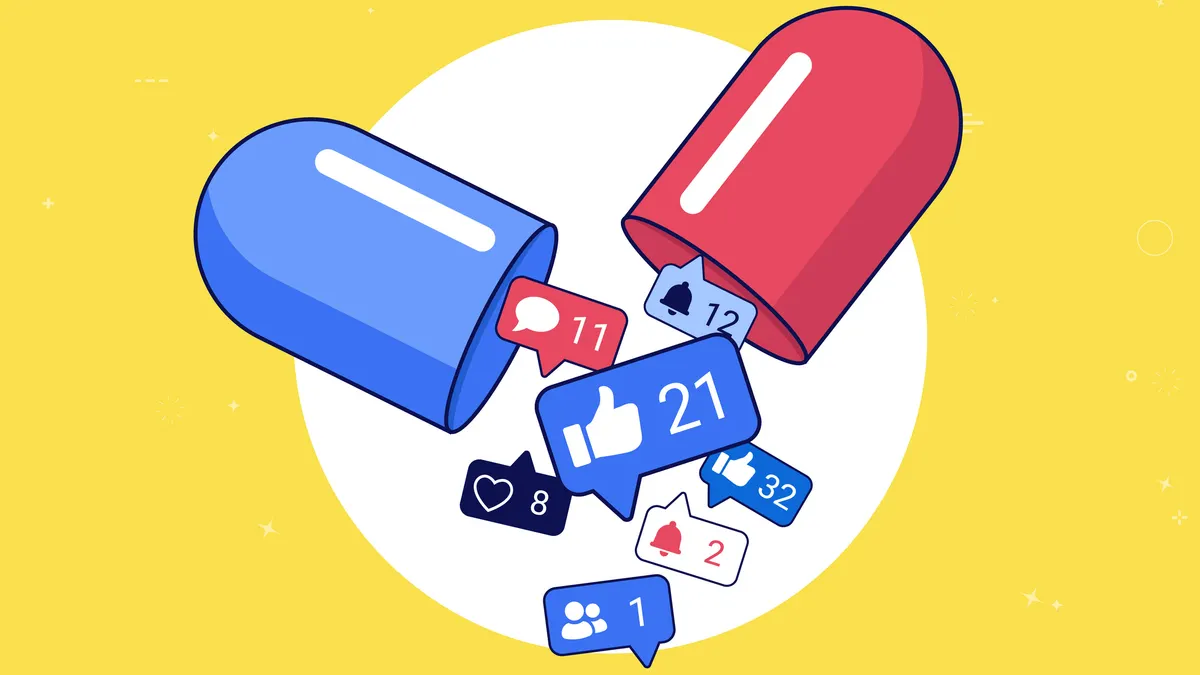Apple Research App Allows U.S. Consumers to Participate in Health Studies
Trend Watch: Apple, Amazon, Alnylam and Others Explore Digital Health Uses
 Apple has a new research app for Apple Watch owners that will allow people to opt in to privately contribute to health research by sharing data collected from the smartwatch and its many sensors as well as the Apple Health app.
Apple has a new research app for Apple Watch owners that will allow people to opt in to privately contribute to health research by sharing data collected from the smartwatch and its many sensors as well as the Apple Health app.
Apple has partnerships with organizations such as the University of Michigan, the World Health Organization, Harvard School of Public Health, the NIH, the American Heart Association, and the Brigham and Women’s Hospital for study data collection. Before, people who wanted to opt into health studies through Apple’s partnerships would have to install a specialized app on their iOS device dedicated to that study alone. The new research app instead allows for a single portal for study opt-in activity.
Apple reports that each consumer can decide what data he or she wants to share with the studies, and that Apple cannot access any information that directly identifies the consumer.
Apple Health Records Comes to Certain Allscripts EHR Suites
 Apple Health Records has come to a handful of Allscripts’ EHR platforms, allowing iPhone users to collate and control their personal health information across different organizations. Both providers and patients documenting records with Allscripts’ Sunrise, TouchWorks EHR, and Professional EHR products have access to Apple’s platform, which uses the FHIR standard.
Apple Health Records has come to a handful of Allscripts’ EHR platforms, allowing iPhone users to collate and control their personal health information across different organizations. Both providers and patients documenting records with Allscripts’ Sunrise, TouchWorks EHR, and Professional EHR products have access to Apple’s platform, which uses the FHIR standard.
The tool is housed with the iPhone’s native health app, and requires the user’s iPhone passcode, fingerprint, or face scan to access. With it, patients can view records consisting of their medications, test results, procedures, immunizations, and other relevant medical info housed within their chart.
An integration with Allscripts’ platforms stands as a major expansion of Apple’s platform, as the company is among the most prolific EHR vendors with thousands of organizations using its products. Apple’s tool has already been tested by a sizeable subset of clients that includes: Sharp HealthCare, UT Physicians, Blessing Health System, Erie County Medical Center, Sarasota Memorial Health Care System, Digestive Disease Associates, and Think Whole Person Healthcare.
HandsFree Health’s Voice Assistant Is HIPAA Compliant
 HandsFree Health has created WellBe voice technology within a secure platform that is compliant with HIPAA. It is estimated that 111.8 million people in the United States will use a voice assistant at least monthly this year, up 9.5% from 102.0 million in 2018. WellBe was built to address consumer healthcare needs from health appointment reminders to insurance information. It’s customizable to an individual, whether it is medication reminders or a procedure cost estimate. In addition to addressing health needs, WellBe includes entertainment elements such as news, music, sports, and weather.
HandsFree Health has created WellBe voice technology within a secure platform that is compliant with HIPAA. It is estimated that 111.8 million people in the United States will use a voice assistant at least monthly this year, up 9.5% from 102.0 million in 2018. WellBe was built to address consumer healthcare needs from health appointment reminders to insurance information. It’s customizable to an individual, whether it is medication reminders or a procedure cost estimate. In addition to addressing health needs, WellBe includes entertainment elements such as news, music, sports, and weather.
Employee Benefit News and Employee Benefit Adviser recently awarded HandsFree Health with a 2019 Digital Innovator Award for WellBe. HandsFree Health was also featured at Microsoft Build 2019 demonstrating AI integration for the healthcare market.
Ieso’s Digital Therapeutics Program Addresses Unmet Global Mental Health Needs
 Ieso Digital Health’s Eight Billion Minds is a new digital therapeutics program that aims to address the global and regional shortages of mental health therapists. Eight Billion Minds is building the next generation of mental healthcare based on analysis of high volume, real-world clinical data from Ieso’s IECBT platform, ThinkWell, with a vision to make mental health treatments accessible for all. Combining practical knowledge of delivering differentiated clinical outcomes with the application of deep learning to hundreds of thousands of hours of therapy, the company has decoded what works in real-world clinical settings and plans to use new technology to distribute highly personalized therapies on a scale that is just not possible in 1:1 delivery.
Ieso Digital Health’s Eight Billion Minds is a new digital therapeutics program that aims to address the global and regional shortages of mental health therapists. Eight Billion Minds is building the next generation of mental healthcare based on analysis of high volume, real-world clinical data from Ieso’s IECBT platform, ThinkWell, with a vision to make mental health treatments accessible for all. Combining practical knowledge of delivering differentiated clinical outcomes with the application of deep learning to hundreds of thousands of hours of therapy, the company has decoded what works in real-world clinical settings and plans to use new technology to distribute highly personalized therapies on a scale that is just not possible in 1:1 delivery.
Ieso’s real-world data set contains more than 200,000 therapy hours from its ThinkWell technology-enabled 1:1 care platform. Using deep learning models and NLP (natural language processing), Eight Billion Minds quantifies and analyses intervention-outcome associations to gain understanding of therapy-related language and what aspects of psychotherapy are most effective. This learning will be used to create clinically engaging and effective digital therapeutics tools for mental health sufferers where there are simply not enough therapists globally to meet demand. It will also work to improve engagement with, and the efficacy of, traditional therapy delivery. Eight Billion Minds already understands which components of therapy are clinically most effective and has built tools to help enable therapists to diagnose and focus on the elements that have been proven by Ieso to have the most impact on a patient’s chances of recovery.
Alnylam and 23andMe Offer Free Kits to Increase Awareness of TTR-Related Hereditary Amyloidosis
 Alnylam Pharmaceuticals and 23andMe are collaborating on a program to offer free 23andMe Health + Ancestry kits to first-degree family members of 23andMe customers with a TTR variant detected in their Hereditary Amyloidosis (TTR-Related) genetic health risk report. The disease, called TTR-related hereditary amyloidosis, is a genetic condition caused by the buildup of a protein called transthyretin (TTR) in the body’s tissues and organs. This protein buildup, called amyloidosis, can damage the nerves, the heart, and other parts of the body.
Alnylam Pharmaceuticals and 23andMe are collaborating on a program to offer free 23andMe Health + Ancestry kits to first-degree family members of 23andMe customers with a TTR variant detected in their Hereditary Amyloidosis (TTR-Related) genetic health risk report. The disease, called TTR-related hereditary amyloidosis, is a genetic condition caused by the buildup of a protein called transthyretin (TTR) in the body’s tissues and organs. This protein buildup, called amyloidosis, can damage the nerves, the heart, and other parts of the body.
The new program is part of a collaboration to raise awareness of this under-diagnosed, but potentially life-threatening, hereditary condition.
In April 2019, 23andMe released a new Genetic Health Risk report, supported in part by Alnylam, that looks at three of the most common TTR variants and provides customers with information on whether their genetics may place them at increased risk for TTR-related hereditary amyloidosis. The condition is highly hereditary, meaning that it is passed through families. If a person has one genetic variant, at least one parent is also expected to have the same variant. In addition, each child and sibling has at least a 50% chance of having the variant.
Amazon Launches Virtual Primary Care for its Seattle Employees
 Amazon has launched Amazon Care, a virtual primary care offering for its Seattle-based employees. Amazon Care includes telemedicine, online chat with a nurse, medication delivery, and app-enabled house calls to the employee’s office or home. Amazon is not employing any doctors; instead the company is contracting with a local clinic called Oasis Medical Group. Also, the offering is not 24-7, though it does have extended hours, from 8 a.m. to 9 p.m. on weekdays and 8 a.m. to 6 p.m. on weekends. It is not being offered or recommended for emergency care.
Amazon has launched Amazon Care, a virtual primary care offering for its Seattle-based employees. Amazon Care includes telemedicine, online chat with a nurse, medication delivery, and app-enabled house calls to the employee’s office or home. Amazon is not employing any doctors; instead the company is contracting with a local clinic called Oasis Medical Group. Also, the offering is not 24-7, though it does have extended hours, from 8 a.m. to 9 p.m. on weekdays and 8 a.m. to 6 p.m. on weekends. It is not being offered or recommended for emergency care.
Amazon is following in the footsteps of Apple, which quietly launched its own employee clinic network called AC Wellness in early 2018.
Amazon Care can be used for urgent healthcare issues such as colds, infections, or minor injuries, along with preventive health consults, vaccines, lab work, sexual health services, and general health questions.
The pilot could open up a new market for Amazon to disrupt. It would face a lineup of competitors, including virtual care players American Well, Teladoc, and Doctor on Demand, if it expands.
Smart Insole Can Double as Lifesaving Technology for Diabetic Patients
 Stevens Institute of Technology has signed an exclusive licensing agreement with Bonbouton, giving the health and technology company the right to use and further develop a graphene sensing system that detects early signs of foot ulcers before they form so people living with diabetes can access preventative healthcare and manage their health.
Stevens Institute of Technology has signed an exclusive licensing agreement with Bonbouton, giving the health and technology company the right to use and further develop a graphene sensing system that detects early signs of foot ulcers before they form so people living with diabetes can access preventative healthcare and manage their health.
The smart insole, Bonbouton’s first product, can be inserted into a sneaker or dress shoe to passively monitor the foot health of a person living with diabetes. The data are then sent to a companion app, which can be accessed by the patient and shared with his or her healthcare provider, who can determine if an intervention or treatment is needed.
Bonbouton’s smart insoles sense the skin’s temperature, pressure, and other foot health-related data, which can alert a patient and his or her healthcare provider when an infection is about to take hold. This simplifies patient self-monitoring and reduces the frequency of doctor visits, which can ultimately lead to a higher quality of life.
Bonbouton is partnering with the health insurance company MetLife to determine how its smart insoles will be able to reduce healthcare costs for diabetic foot amputations. (PV)
















